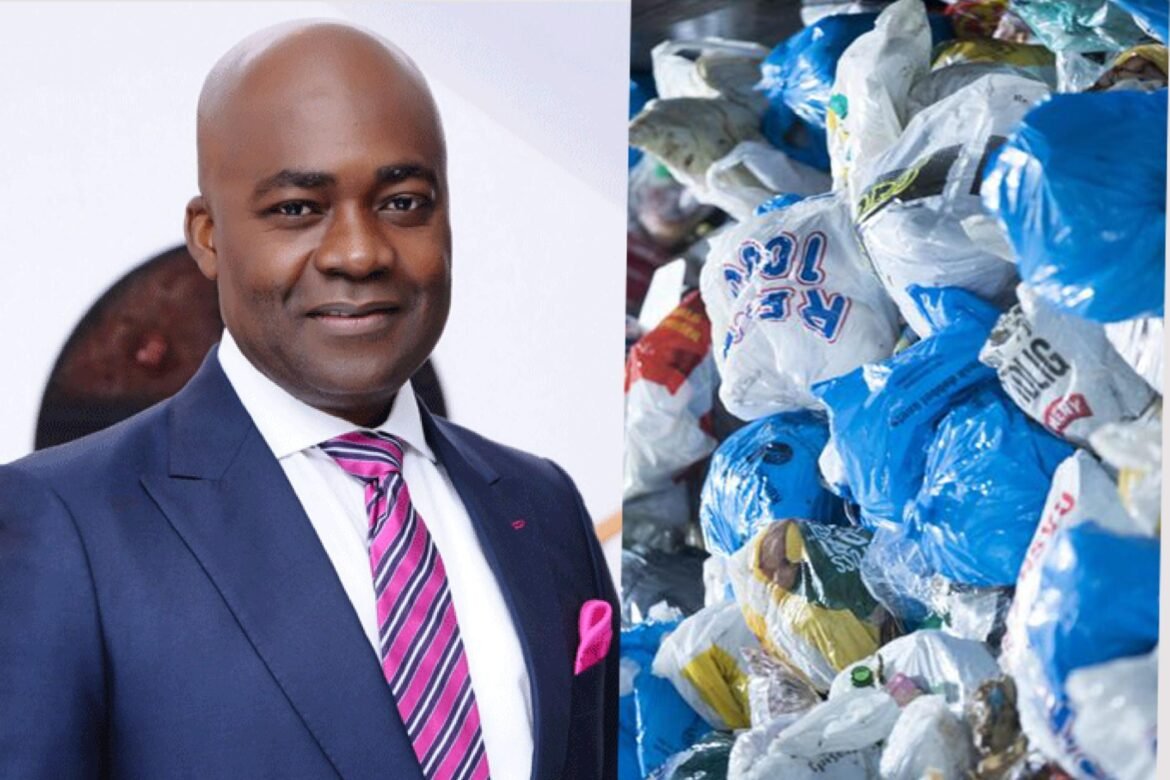I wish I knew Hon. Sergius Oseasochie Ogun. The good honourable representing the good people of Esan North-East/Esan South-East in Edo State deserves a pat on the back.
While most of his colleagues have become adept at snoring and frittering away their mandate, one sitting at a time, Hon. Ogun has dared to be different in a good and commendable way.
And last Tuesday, the House passed the Bill to proscribe the use, manufacture and importation of plastic bags in Nigeria.
Known as the Plastic Bag Prohibition Bill, it provides for: “An act to prohibit the use, manufacture and importation of all plastic bags used for commercial and household packaging in order to address harmful impacts to oceans, rivers, lakes, forests, environment as well as human beings and also to relieve pressure on landfills and waste management and for other related matters.”
It also recommends a fine of N5m to companies guilty of the offences. This Bill was sponsored by none other than Hon. Ogun himself.
You can now see the reason I insist the lawmaker deserves accolades? The war on plastic pollution is one many proactive nations started long time ago.
Rwanda, a war-torn African country, banned the use of plastic bags in 2008 and they are still alive; they’re still shopping and well on their way to becoming the best countries in Africa. In fact, its capital, Kigali, is said to be the cleanest in the world
Far back as in 2009 when I spent a couple of months in Berlin for a course on Environmental Reporting at the International Institute of Journalism, shops like Aldi were already asking that people come with their shopping bags or pay for the conventional nylon shopping bags.
Then you would see shoppers at the check-out points unfold their neatly packed canvas shopping bags to pack their purchases while we, the JJCs (new visitors), paid for shopping bags at about 20 cents which is like N100.
However, it didn’t take long for some us to start visiting the shops with our shopping bags too!
But I may be going too far by bringing a first world country like Germany into this arena.
Rwanda, a war-torn African country, banned the use of plastic bags in 2008 and they are still alive; they’re still shopping and well on their way to becoming the best countries in Africa. In fact, its capital, Kigali, is said to be the cleanest in the world.
Certainly we don’t need anyone to tell us that the absence of plastics waste on their streets must have contributed significantly to this enviable status.
Kenya too is not far behind as it fines people selling or using plastic bags up to $37,000 and/or imposes a four-year jail sentence. Mauritania and Morocco are said to have also banned plastic bags.
You see, this war against plastic pollution is one we cannot ignore.
According to reports, an estimated eight million tonnes of harmful plastic waste find their way into our oceans.
And that if we didn’t do anything drastically to reverse the present trend, then by 2050 our oceans will have more plastics than fish
I was telling someone recently that it’s probably plastic pollution that would finally bring the long overdue annihilation of human beings on earth.
Yes, the prognosis is that bleak.
Isn’t it ironic that what two world and several pockets of civil wars couldn’t achieve might finally come our way through our indiscriminate consumption?
Oh, the universe and all its faithful servants must be laughing at us.
According to reports, an estimated eight million tonnes of harmful plastic waste find their way into our oceans.
And that if we didn’t do anything drastically to reverse the present trend, then by 2050 our oceans will have more plastics than fish.
But even the fish that would survive amid the gross pollution won’t still be plastics free. Already scientists have discovered microplastics in about 114 aquatic species, more than half of which they say, end up in our kitchens and on our plates. Should we also imagine the implication of this on our collective health?
You see, unlike food and paper products, plastics are said to take about 400-1000 years to decompose. So, even if we stopped using them today, the years ahead will have to be filled with giant remedial steps.
Just last month organisers of the London Marathon gave out edible water capsules instead of the traditional plastic water bottles.
The edible pods, made with seaweed membrane could also be thrashed if the athletics didn’t want to eat them after drinking the water they contain.
This is still okay because according to the organisers, the pods are designed to biodegrade within six weeks, compared to the hundreds of years it takes for plastic bottles to decompose.
However, we can’t even talk about such innovations here since we have chosen to remain light years away from embracing the recycling technology and all the benefits it holds.
Hopefully the Senate will also see the light and do the needful. This is where we desperately need Senator Ben Murray-Bruce to bring his legendary ‘common sense’ to bear. He should kindly let electric cars be for now
We can, nonetheless, start with this Bill and see where it leads us
Hopefully the Senate will also see the light and do the needful. This is where we desperately need Senator Ben Murray-Bruce to bring his legendary ‘common sense’ to bear.
He should kindly let electric cars be for now.
I also expect the Ministry of Environment and the National Orientation Agency not to remain silent in the matter.
This bill if finally passed by both houses, as we are praying it should, would require a major behavioural shift in the country.
Such should always be preceded by intense and wholesome sensitisation all over the 774 local councils in the country.
In this war, the change we need truly begins with us. And we shouldn’t wait for Minister Lai Mohammed to remind us.








